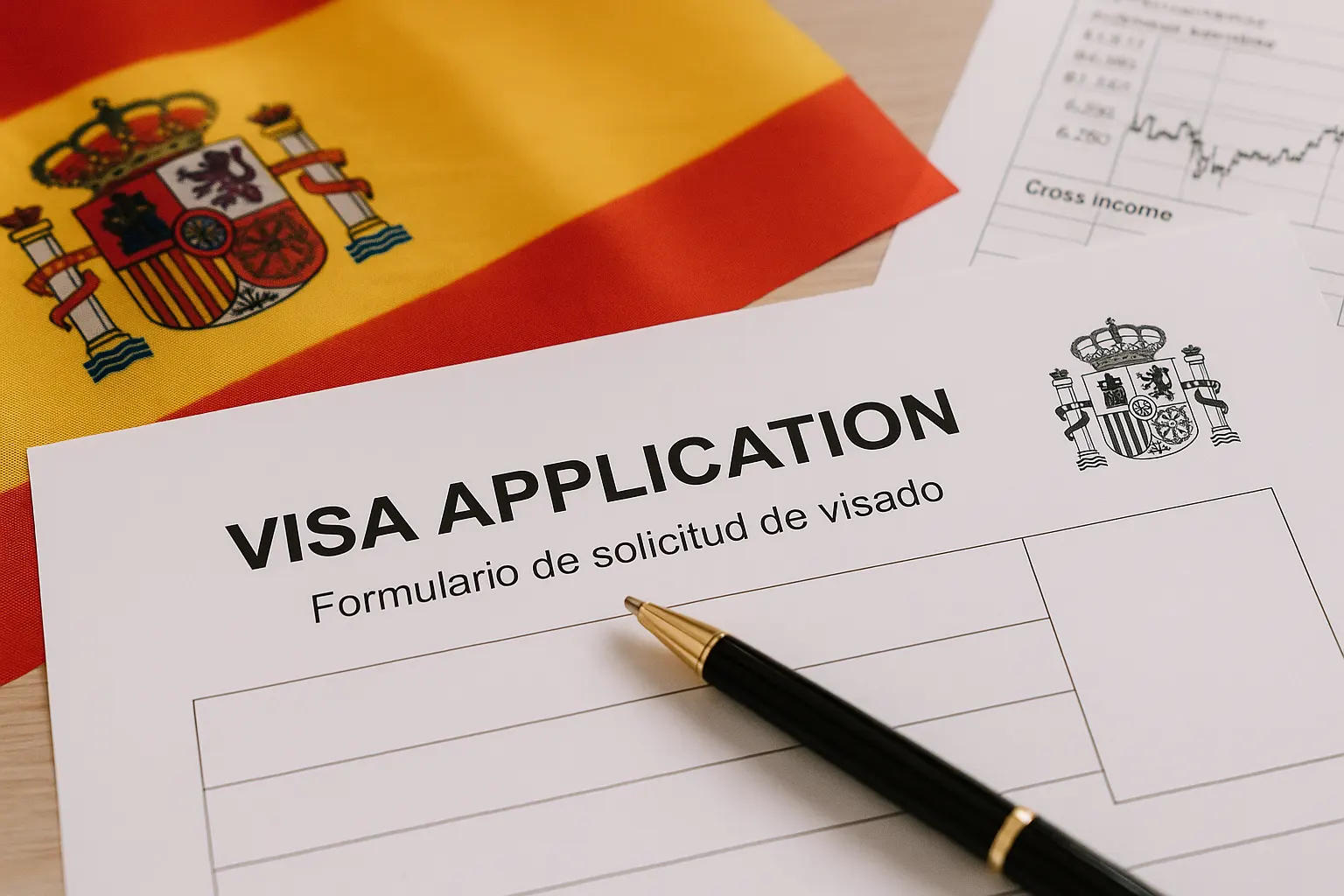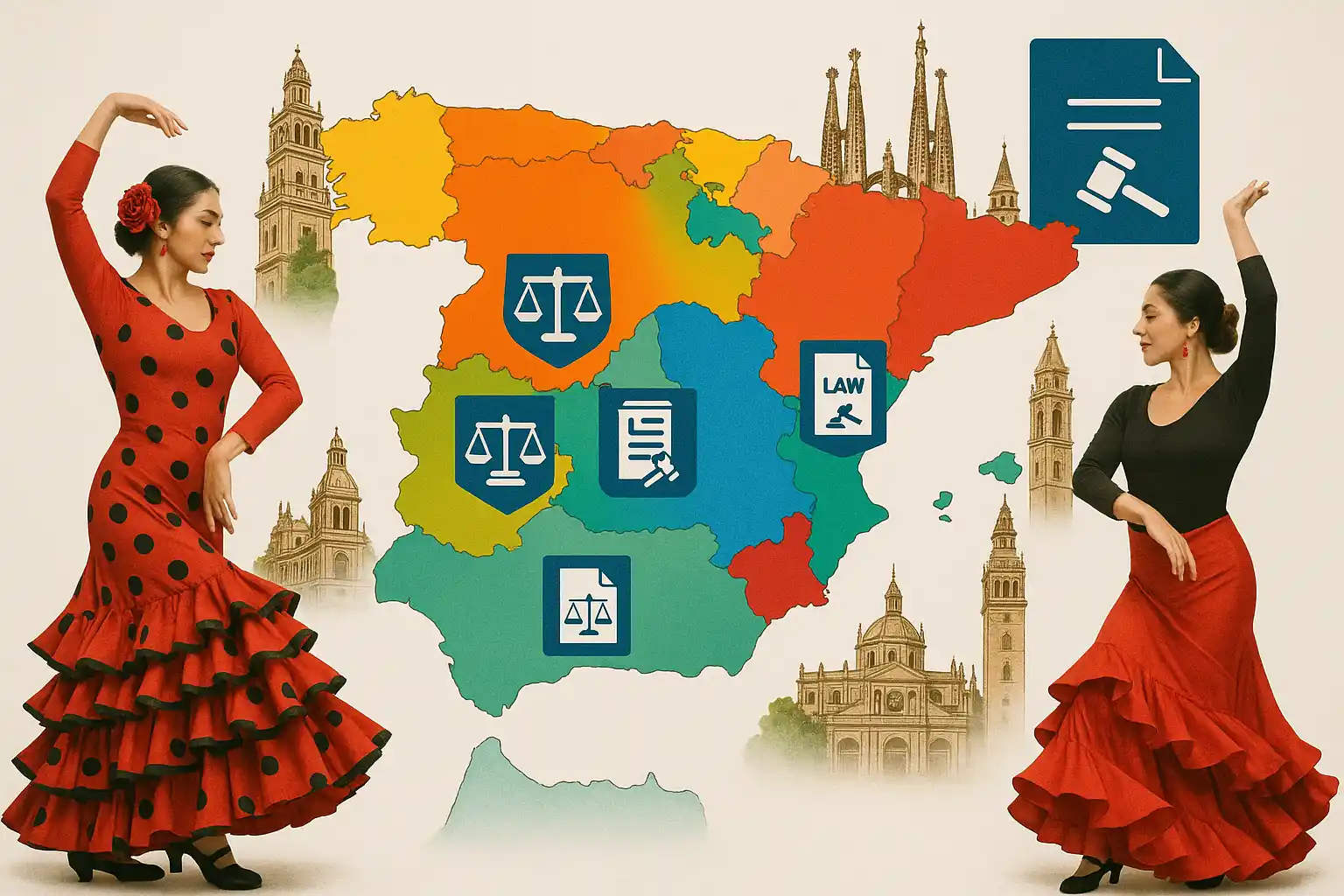Both Italy and Spain have introduced digital nomad visas aimed at attracting remote workers from outside the European Union. These visas enable professionals to live and work legally while enjoying the cultural and lifestyle benefits of these Mediterranean countries.
Key distinctions between the two include:
- Income Requirements
- Italy mandates a minimum annual income of approximately €28,000, ensuring applicants have sufficient financial means. Spain’s income thresholds vary depending on the applicant’s situation, offering more flexibility.
- Visa Duration and Renewals
- Italy’s visa processing time ranges between 1 to 4 months, with renewal details less explicitly defined. Spain grants an initial visa for one year, which can be extended up to a total of three years, providing longer-term stability for digital nomads.
- Application Prerequisites
- Both countries require proof of ongoing remote work, valid health insurance coverage, and proper documentation such as passports and employment verification.
- Eligibility and Stay Conditions
- Eligibility criteria differ notably; for example, Spain imposes limits on the amount of time spent abroad during the visa period. Such nuances are important when deciding between the two options.
This digital nomad visa comparison will explore these elements in depth, helping prospective applicants understand the practical implications of choosing between the Italy digital nomad visa vs Spain digital nomad visa.
However, it’s worth noting that Spain’s digital nomad visa is not only competitive with Italy’s but also with other countries like Thailand, Estonia, Portugal, and Greece. For instance, if you’re considering a broader range of options beyond just Italy and Spain, you might want to explore the Thailand vs Spain Digital Nomad Visa, which provides a comprehensive comparison between these two popular remote work destinations.
Similarly, if you’re interested in how Spain’s digital nomad visa stacks up against Estonia’s, our detailed analysis on Spain vs Estonia Digital Nomad Visa could be beneficial.
For those weighing their options between Spain and Portugal for digital nomadism, our article on Comparing Digital Nomad Visas: Spain vs. Portugal offers valuable insights.
Lastly, if Greece is also on your radar as a potential destination for remote work, you might find our comparative analysis on Spain or Greece? Choose the Best Digital Nomad Visa for You helpful in making your decision.
Introduction
The rise of remote work has reshaped how professionals approach their careers and lifestyles. Countries across Europe have responded by introducing digital nomad visas Europe to attract international talent seeking flexibility and new cultural experiences. Italy and Spain stand out as popular destinations due to their rich history, vibrant cultures, and favorable climates, complemented by tailored remote work visas Italy Spain designed to accommodate non-EU remote workers.
This article provides a detailed comparison of Italy’s and Spain’s digital nomad visa programs. It aims to clarify the eligibility requirements, application procedures, duration limits, and key conditions associated with each visa type. Potential applicants will find practical insights to assess which country aligns better with their professional goals and personal preferences.
Information is drawn from expert immigration law knowledge combined with the latest updates on visa regulations. This ensures accuracy in portraying the current landscape of digital nomad opportunities in both Italy and Spain. Understanding these nuances supports well-informed decisions for individuals pursuing legal remote work residency within Europe’s dynamic environment.
Overview of Digital Nomad Visas in Europe
Digital nomad visas are a specific type of residence permit created for remote workers who want to live and work legally in European countries without being employed locally. These visas are mainly intended for non-EU citizens who work remotely or run their own businesses for companies or clients located outside the country they are staying in.
Key aspects of Europe digital nomad visa overview include:
- Purpose: Enable international remote workers to reside in Europe while maintaining their employment abroad.
- Eligibility: Proof of stable remote work, sufficient income, health insurance coverage, and valid identification documents.
- Duration: Varies by country, often ranging from several months up to multiple years with possible renewals.
The strategic importance of digital nomad visas lies in their capacity to attract a growing global demographic of remote professionals contributing economically without competing in the local job market. Countries benefit from increased tourism-related spending, cultural exchange, and potential long-term residency applications.
Remote worker residency Europe initiatives encourage innovation, diversify local economies, and position nations competitively within the global talent landscape. This framework supports a modern workforce lifestyle that prioritizes flexibility and mobility while ensuring compliance with immigration regulations.
Understanding how individual countries implement these visas clarifies options available to applicants and highlights variations in requirements, application processes, and benefits.
Understanding the Italy Digital Nomad Visa
The Italy digital nomad visa targets non-EU remote workers employed by foreign companies or those self-employed in specified professions. Eligibility centers on demonstrating continuous remote work outside Italy’s domestic labor market. Applicants must prove stable income, typically a minimum annual threshold around €28,000. This visa type differs from Spain’s approach by emphasizing professional qualifications and income consistency rather than variable thresholds or renewal conditions.
Key eligibility points include:
- Citizenship outside the European Union
- Employment or freelance activity with companies located abroad
- Engagement in qualified professions approved under Italian regulations
Distinct characteristics of the Italy digital nomad visa vs Spain digital nomad visa relate to eligibility criteria focusing more strictly on income and profession rather than duration and renewal flexibility.
Exploring the Application Process & Required Documentation for Italy’s Visa
The Italy visa application process for the digital nomad visa requires submitting applications through Italian consulates or embassies located in the applicant’s country of residence. Processing times typically range from 1 to 4 months, depending on the consulate’s workload and completeness of the application.
Applicants must prepare a comprehensive set of documents to meet Italy’s visa requirements. Essential paperwork includes:
- Valid passport with at least six months’ validity beyond the intended stay.
- Proof of remote employment or freelance activity, such as an employment contract, client contracts, or business registration documents.
- Evidence of sufficient income, generally demonstrating an annual minimum threshold around €28,000, supported by bank statements, tax returns, or pay slips.
- Health insurance coverage valid in Italy throughout the visa period, covering medical expenses and emergencies.
- A completed visa application form provided by the consulate or embassy.
- Recent passport-sized photographs meeting official specifications.
Additional documentation may be requested based on individual circumstances or specific consulate policies. Applicants should verify exact requirements with their local Italian diplomatic mission before submission.
The thoroughness of required documents ensures applicants can prove stable remote work arrangements and financial self-sufficiency. This documentation is crucial for a successful digital nomad visa application in Italy.
Pros & Cons of the Italy Digital Nomad Visa
Benefits Italy digital nomad visa:
- Grants legal residency in Italy to remote workers, allowing them to live and work legally within Italian territory.
- Enables access to local services and facilities available to residents, enhancing quality of life.
- Supports self-employed professionals and employees working for foreign companies without requiring a local job offer.
- Offers an opportunity to experience Italian culture while maintaining professional activities remotely.
Limitations:
- The visa does not provide an immediate pathway to Italian citizenship; applicants must meet standard residency requirements independently.
- Residency rights are tied strictly to remote work eligibility criteria, limiting flexibility in employment status changes.
- Renewal conditions and long-term stay options remain less defined compared to other visa types.
Examining the Spain Digital Nomad Visa
The Spain digital nomad visa targets non-EU foreigners residing in Spain who work remotely. Eligible applicants must be employed by companies or operate as self-employed professionals based outside Spain. This visa allows remote workers to legally live and work within Spanish territory while maintaining employment relationships abroad.
Key features include:
- Employment or freelance activity must be international, with income generated from outside Spain.
- Applicants should meet specific Spain digital nomad visa requirements, such as minimum income thresholds that vary depending on circumstances.
- The visa facilitates compliance with Spanish immigration law without requiring local employment contracts.
Comparing the Italy digital nomad visa vs Spain digital nomad visa, Spain provides a structured framework focused on remote work continuity and residency within its borders for up to one year initially, with potential renewals.
Understanding the Application Process & Duration for Spain’s Visa
The Spain digital nomad visa application process begins with submitting an application from outside Spain, typically at a Spanish consulate or embassy in the applicant’s home country. The initial approval grants a visa valid for up to one year. This duration accommodates remote workers seeking to establish their stay legally while working for foreign companies or as self-employed professionals.
Once the initial period expires, visa holders can apply for renewal from within Spain, extending their stay up to a maximum of three years total. This renewal process is critical for those aiming to maintain long-term residency without interruptions.
Key aspects of the process include:
- Application submission abroad: Required before entering Spain, ensuring compliance with immigration laws.
- Initial validity: Up to 12 months, providing sufficient time for settling and work continuity.
- Renewals: Conducted inside Spain, allowing extensions up to two additional years.
- Documentation review: Includes proof of ongoing remote work and financial sufficiency during renewals.
The duration Spain remote work visa offers balances flexibility and security, supporting digital nomads who plan medium-term stays. Applicants should prepare for timing considerations related to document verification and possible interviews during both initial application and renewal phases.
Additional Requirements & Conditions for the Spanish Visa
Applicants for the Spain digital nomad visa must provide proof of continuous remote work to maintain eligibility throughout their stay. This requirement ensures the visa holder remains actively employed by foreign companies or self-employed outside Spain.
Health insurance coverage is mandatory, with policies meeting Spanish standards to guarantee access to healthcare services. The criterion of health insurance Spain digital nomad visa compliance protects both the applicant and the host country’s public health system.
Stay limitations specify that while remote workers can reside in Spain during their visa validity, extended absences from the country may affect renewal eligibility. Understanding these stay limitations Spain remote workers is crucial for long-term planning under this visa scheme.
Comparative Summary: Key Differences Between Italy and Spain’s Digital Nomad Visas
Application Timeline & Process Efficiency: A Closer Look at Italy vs Spain Digital Nomad Visas
The visa processing time comparison Italy Spain reveals distinct differences. Italy’s digital nomad visa application typically requires between one to four months to process. This duration reflects a more traditional bureaucratic approach, involving consulate or embassy submissions, physical document checks, and slower administrative procedures.
In contrast, Spain streamlines the initial application with a visa granted for up to one year when applied for from abroad. The renewal process—conducted within Spain—tends to be more efficient, facilitating extensions up to three years without restarting the whole application cycle. This renewal flexibility enhances the application ease digital nomads experience in Spain.
When it comes to eligibility and income thresholds, Italy demands a minimum annual income around €28,000, setting a clear financial baseline for applicants. Spain employs variable income requirements, adjusted to applicant circumstances but generally competitive, accommodating a broader range of remote workers.
The procedural contrast impacts decision-making for remote professionals who weigh speed and simplicity against formalities. Those prioritizing quicker renewals and in-country extension options might prefer Spain, while applicants valuing the established residency benefits offered by Italy may accept longer waiting periods.
This comparison underscores how compare eligibility Italy vs Spain involves balancing processing efficiency with income criteria and renewal policies when choosing between these two popular European digital nomad visas.
For those considering other options, such as moving from the UK or Japan, this article offers a comprehensive comparison of the UK and Spain for expats in 2025. Similarly, if you’re interested in understanding how the digital nomad visa requirements differ between Japan and Spain, this resource provides valuable insights into those specific aspects.
Duration & Renewal Policies: Understanding Timeframes for Both Countries’ Digital Nomad Visas
1. Visa Duration and Renewal Options
- Spain Digital Nomad Visa: Initial visa duration is typically one year, with the possibility to renew up to three years total. This renewal process can be completed from within Spain, offering flexibility and continuity for remote workers.
- Italy Digital Nomad Visa: The visa’s initial duration is generally up to one year, but specific renewal policies remain less defined, creating uncertainty for long-term planning.
2. Income Requirements
Italy requires a minimum annual income of around €28,000, while Spain employs variable income thresholds depending on the applicant’s situation and profession.
3. Professional Qualifications
Eligibility criteria differ, with Italy focusing on certain qualified professions, whereas Spain accepts a broader range of remote work arrangements.
The contrast in renewal clarity and income requirements influences applicant decisions when comparing eligibility for Italy vs Spain digital nomad visas. For those considering a wider range of options, it’s essential to explore other countries offering digital nomad visas as well.
Legal Support Availability: Analyzing Assistance Options for Applicants in Both Countries’ Digital Nomad Visa Processes
Legal support plays a critical role when navigating digital nomad visa applications in Italy and Spain. Specialized immigration lawyers, such as NIM Immigration Lawyers based in Barcelona, provide comprehensive online advice tailored to the Spanish visa framework. Their services encompass:
- Personalized consultation on eligibility criteria and income threshold comparison digital nomad visas.
- Guidance through application ease digital nomads seek, including documentation and procedural nuances.
- Expertise in legal advice Spain Italy visas, focusing on differences in professional qualifications accepted between the two countries.
Applicants benefit from streamlined electronic file management and direct communication channels, reducing complexity amid varying visa processing time comparison Italy Spain. This legal infrastructure facilitates informed decisions for those weighing italy digital nomad visa vs Spain digital nomad visa options.
Practical Factors to Consider When Choosing Between Italy and Spain as a Destination for Your Digital Nomad Journey
When evaluating the cost implications digital nomad visa application Italy Spain, applicants must account for several financial aspects beyond just the visa fees. Application processing charges differ, with Italy generally imposing higher consular fees compared to Spain. Legal advisory expenses also vary; countries like Spain offer competitive rates through specialized firms such as NIM Immigration Lawyers, which provide online consultations tailored to remote workers.
Lifestyle Preferences & Integration Aspects: Evaluating Living Conditions For Remote Workers In Both Countries
- Living in Italy as a digital nomad offers immersion in cities rich with history and culture, such as Rome, Florence, and Milan. The slower pace of life combined with a deep appreciation for art and cuisine appeals to those seeking a traditional European experience.
- Life quality remote work Spain typically centers around vibrant urban hubs like Barcelona and Madrid or coastal areas offering modern amenities alongside lively social scenes. The climate tends to be milder, and the infrastructure supports a dynamic expat community.
Cultural factors heavily influence integration ease. Italy presents a more formal approach to bureaucracy and social norms, whereas Spain offers a relaxed environment with an emphasis on community and outdoor living. Choosing between the Italy digital nomad visa vs Spain digital nomad visa involves balancing these lifestyle elements with practical concerns such as visa duration, renewal policies, and local support networks.
Prospective applicants should weigh affordability alongside personal preferences relating to climate, language, cultural engagement, and professional networking opportunities to make an informed decision that aligns with their digital nomad aspirations.














